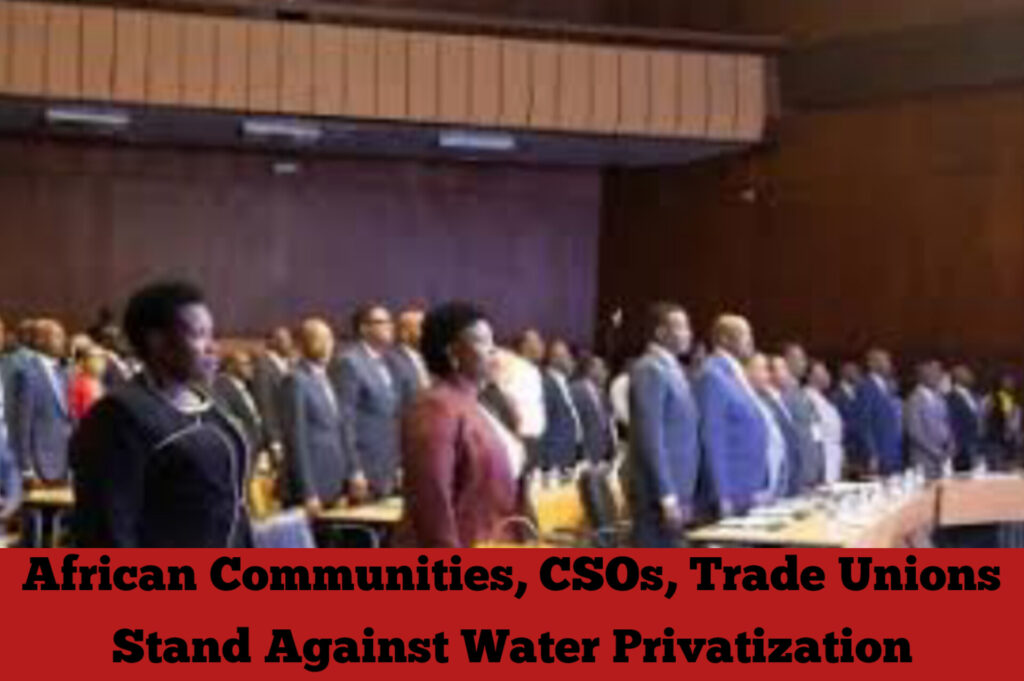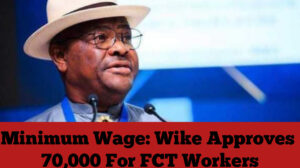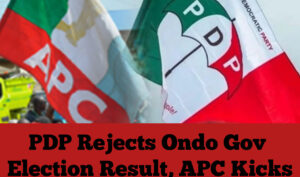
Communities, civil society, and trade unions across Africa are raising their voices against the privatisation of water services, advocating for equitable access to safe water as a fundamental human right.
The executive director of Corporate Accountability and Public Participation Africa (CAPPA), Akinbode Oluwafemi, at an international press conference organised by Our Water, Our Right African Coalition (OWORAC) emphasised the gravity of the issue, adding that the privatisation and corporate control of water services is an insult to the human right to water and an inexcusable abdication of duty by our governments.
Today (Monday) marks the beginning of the fourth annual Africa Week of Action Against Water Privatisation, spearheaded by the Our Water, Our Right African Coalition (OWORAC).
This year’s theme, “Water Justice Over Profit,” reflects widespread frustration over corporate-driven water policies that place profits over people’s needs. Organisers highlight the surge in popular mobilisations in Africa, protesting rising living costs and prioritising corporate interests over public welfare.
The campaign coincides with the annual meetings of the World Bank and International Monetary Fund, both of which are accused of using their influence to push privatisation policies that undermine public water systems. Large multinationals are said to benefit most from these schemes, while African communities bear the brunt of rising costs, deteriorating infrastructure, and poor water access.
OWORAC and its partners call for a public-centred approach to water management, prioritising public welfare and sustainable solutions. They demand an end to corporate acts of impunity and the protection of water as a human right for all Africans.
Programme officer for Water Campaigns CAPPA, Sefa Ikpa, said these privatisation policies have jeopardised the human right to water and widened the gap between rich and poor across the Global South.
The privatisation of essential services like water systems is a clear example of how international financial institutions and bilateral development agencies, such as the United States Agency for International Development (USAID), push anti-people policies. Despite widespread public opposition, these institutions continue to promote privatisation, leaving communities to bear rising costs, deteriorating service, and environmental degradation,” said Ikpa.
Large multinational corporations like Veolia and Suez, which control water services in several African countries, have been named as primary beneficiaries of these schemes. In Senegal, Suez’s water system management through its subsidiary Sen’Eau has led to skyrocketing bills, unreliable service, and attacks on trade unionists speaking out against these inequities. A recent state audit even suggested that the company was siphoning resources for profit, leaving the public to pay the price.
The situation is similarly dire in other African nations. In Lagos, Nigeria, international organisations have backed water privatisation schemes, leading to the dismissal of hundreds of unionised workers and creating momentum towards further privatisation of the city’s water services.
Geoffrey Kabutey Ocansey of Revenue Mobilization Africa in Ghana echoed these concerns, pointing to corporate negligence and reckless extractive activities, particularly illegal mining, as the cause of widespread water contamination in local rivers.




